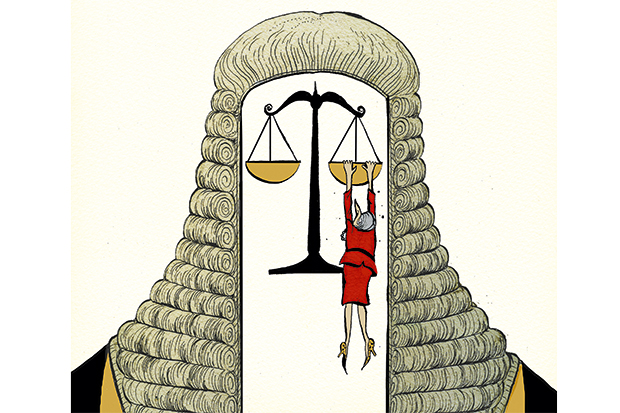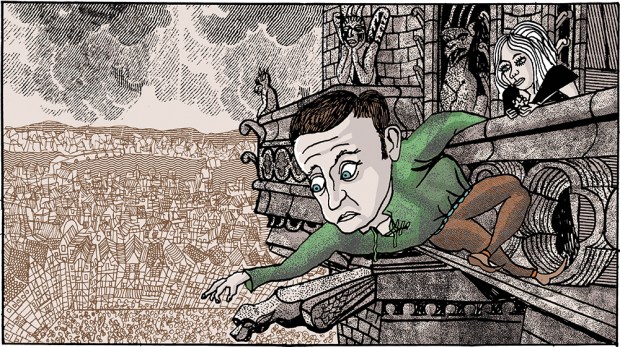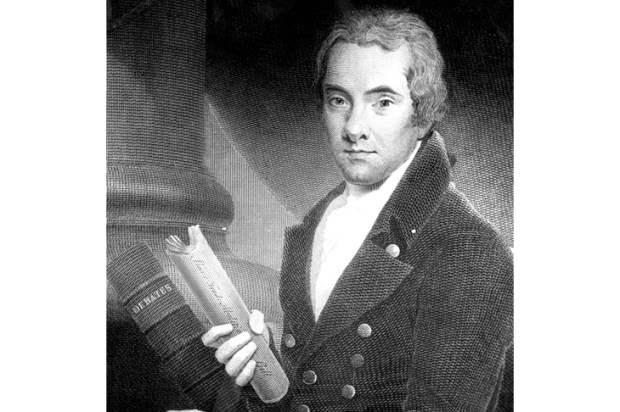For once, a cliché is justified: the government’s appeal to the Supreme Court next week really will be a landmark case. The underlying issue could not be greater: the political future of the United Kingdom and its relationship with the European Union. The number of judges could not be greater either: 11 is the largest panel to have heard a single appeal, not just since the court was created seven years ago but since its predecessor was established in 1876. But perhaps the greatest issue at stake is the reputation of the judiciary, at a time when judges are under attack as never before.
Nigel Farage had threatened a 100,000-strong march on the Supreme Court. He has since changed his mind, but there will be no shortage of drama. Theresa May’s case is that her government does not need a vote in Parliament to give formal notice of its intention to leave the European Union. The people voted on 23 June, she said, so that’s that. An investment fund manager named Gina Miller disagreed, and took her to court. Only Parliament can take away rights that Parliament has granted, she said: in this case, through the 1972 Act that took Britain into what is now the EU. The High Court upheld her complaint last month, to the fury of Mr Farage and others who see a plot to sabotage Brexit.
The next stage is an appeal to the Supreme Court, which has set aside four days for the televised hearing. There will be quite a cast: the court has agreed to consider representation from the SNP-led Scottish government as well as an outfit called the Independent Workers Union, both of which oppose Brexit. The show is certain to end on a cliffhanger, with the ruling not expected until the new year. All told, we are set for a courtroom drama the like of which Britain has seldom seen before.
The Supreme Court itself is a modern invention, set up under Tony Blair’s government. Its name is deceptive — inviting confusion with the United States Supreme Court, which can overrule governments. But this is the oddity about Britain: we don’t have a written constitution or judges who can declare laws unconstitutional. Here, Parliament remains supreme. If it doesn’t like what the judges decide — in this as in any other case — it can overrule a judgment by passing legislation. To quote Vernon Bogdanor’s pithy summary of the British constitution, ‘What the Queen in Parliament enacts is law.’ The only catch is that Parliament must use clear wording. If it leaves legislation incomplete — like the European Union Referendum Act 2015, which says nothing about the consequences of a Leave vote — then the judges can’t be expected to fill in the gaps.
The Prime Minister argues that there are no gaps because her government can exercise ancient powers without Parliament’s approval. The courts define these so-called prerogative powers as ‘the residue of legal authority left in the hands of the Crown’. But because the UK’s constitution is not codified, these powers are not listed. Mrs May and her lawyers had assumed that such powers extended to implementing the result of a referendum. They assumed wrongly.
So, does the High Court decision represent a lawyer’s intifada, or simply a calm determination to uphold the law? The Daily Mail’s voice has been, as so often, the most forceful in the debate. It was an outrage, the paper said, for three ‘out of touch’ judges to rule that ‘embittered Remainers in Parliament should be allowed to frustrate the verdict of the British public’. It believes that the judgment put Britain ‘on course for a full-blown constitutional crisis’ and that the judges who heard the case were (as its headline put it) ‘enemies of the people’. The judges may rise above this personally, but they will be anxious about the damage done to public confidence in the judiciary — and the wider constitutional balance. Lord Hope, formerly the UK’s second most senior judge, summed it up well this week. ‘If you diminish the judiciary in the eyes of the public,’ he said, ‘then the executive may think they can get away with things that diminish the judiciary too.’
For years, now, I have been following the former BBC producer Angela Holds-worth on Twitter, noting that she has not been inhibited from speaking her mind by the fact that her husband, Lord Neuberger, is president of the Supreme Court. She has occasionally expressed dismay at the Brexit vote. But the court’s conduct guide asks its justices to ‘bear in mind that political activity by a close member of a justice’s family might raise concern in a particular case about the judge’s own impartiality’. When it was suggested that Holdsworth’s tweets might amount to political activity, Neuberger’s spokesman said (not unreasonably) that her comments had no bearing on his ability to decide the legal issues in the case impartially.
Then we have Lady Hale, the court’s deputy president, who in a public lecture raised a question about the type of legislation that might be needed if the government were to lose its appeal. The question, she told her Malaysian audience, is whether a simple Act of Parliament could authorise the government to give notice or whether Mrs May would need ‘a comprehensive replacement for the 1972 Act’. The idea of ‘comprehensive’ legislation — which could slow things down by several months — was not, until then, on anybody’s agenda.
Did she overstep the mark? The High Court had been punctilious in not trespassing on parliamentary privilege; I am confident that the Supreme Court will now be equally careful. That said, her comments were unwise — as Lord Neuberger seemed to accept. ‘Generally speaking,’ he told a reporter, ‘I would say judges shouldn’t discuss cases we’re about to hear. If we do we should do so carefully.’ But this didn’t disqualify Hale from sitting, he said. ‘We have taken an oath to decide cases according to the law and if we don’t do that we’re not worthy of the name of judges.’ This is precisely the question now before us: to what extent can, and should, the public trust the judges?
Compared with the United States and most other countries, the reputation of Britain’s judges is enviable. For the most part, the party-political views of the justices are unknown (see sidebar) — which is perhaps why so much attention has fallen on what their spouses say. Lord Pannick, the forensically brilliant QC who persuaded the High Court to find against the government, has reminded the judges in his written argument that it’s not their job to decide whether David Davis, the Brexit Secretary, should exercise whatever prerogative powers he might have. The only question is whether or not he has these powers.
Mrs May’s camp have refined their arguments, but the same contention remains: that the government’s prerogative powers allow ministers to change the law of the land. It’s an argument that any judge would find unattractive — not because of any bias against Brexit, but because judges who deal with this type of case see their role as ensuring that ministers don’t act beyond the constraints set by Parliament. Our system of government really is quite clear: no judge, Eurocrat or even Prime Minister can undo what Parliament has done.
The test for the justices is to persuade the public that they are deciding this case according to law, not politics, and that we are nowhere near having a politicised Supreme Court in the UK. If we ever found ourselves selecting our judges according to their views on Brexit, or anything else, then the ramifications would be ugly and far-reaching.
If and (I suspect) when the government loses its appeal, Theresa May should tell Parliament that she respects the courts for clarifying laws that it had been her duty to test, that the judges had been true to their oaths, and the responsibility for effecting the will of the people would now be in the hands of Parliament — where it has always belonged.
The post Brexit in the balance appeared first on The Spectator.
Got something to add? Join the discussion and comment below.
You might disagree with half of it, but you’ll enjoy reading all of it. Try your first month for free, then just $2 a week for the remainder of your first year.













